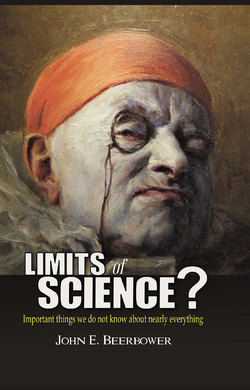Читать книгу Limits of Science? - John E. Beerbower - Страница 31
На сайте Литреса книга снята с продажи.
Explanation Revisited
ОглавлениеThese arguments lead me to add a comment on the second of the two characteristics I noted above as generally true of a useful theory—that it causes one to feel that understanding or insight has been achieved by virtue of the theory. The feeling may be quite powerful and exciting, as a sense of illumination or revelation: a “Eureka” moment. New connections are revealed. A feeling of comprehension is achieved. At least a partial glimpse of some underlying truth has been obtained.
Obviously, such experiences are inherently and necessarily “subjective.” (“Whatever we mean by illumination, it is intimately connected to the mind, and therefore to intelligence.” William Byers, The Blind Spot, p.41. Indeed, “‘understanding’ … means developing a subjective feeling for the subject.” Id., p.103.) This undeniable fact poses a problem for the classical view of science as “objective,” that is, as independent of the observer.33 But, again, we shall leave that issue aside for the moment.
While I doubt that many would deny that the experience of revelation does occur, what is the source of the feeling of insight and what does the feeling indicate with respect to the question of whether the theory is true, that is, the issue of whether it conforms with or at least partially depicts reality?
Two rather different possibilities jump to mind. Perhaps the feeling occurs because, in fact, we have achieved at least some glimpse of reality, which seems to be what Polanyi considers scientific “vision” to be. The other possibility is that the sense of comprehension or understanding is achieved not because of a new theory’s closer relationship to reality, but because of factors inherent in the human mind or arising through society and culture. For example, it is possible that the feeling of revelation occurs when a proffered theory happens to support or vindicate a prejudice or bias that one already has based upon emotional grounds or subconscious perception of self-interest.34
A somewhat different theory about the nature and source of scientific insight postulates that the human mind is wired to respond to certain types of logic and structure, so that some of secrets of the Universe are part of our very physical being. Therefore, as scientific thinking more closely approaches the underlying structures of the Universe, we respond with recognition. This type of explanation occurs sometimes in connection with logic and mathematics, and it has been used by some mathematicians to explain the appeal and forcefulness of mathematics.
One interesting inference from this line of thought is that, perhaps, there is some part of a reality in the Universe that is reflected or embodied in the human mind, so that our search for understanding can and does or, at least, tends to lead us toward the truth and that that process can be pursued through thought as opposed to (or, in addition to) observation and experimentation.35 This embodiment could be, for example, the result of the inherent structure of the mind, as part of the Universe, or as an adaptive development, occurring by chance (or otherwise) and enhancing the survival of the species.
In contrast, on the other hand, it is possible that the pervasive role of the workings of the mind and mental constructs in our efforts to comprehend our physical environment inevitably intrude into or “taint” the process so that we will always see some of ourselves in any structure that we can create to model the Universe, even if such forms do not really exist in the universe being modeled. Admittedly, these thoughts are pretty speculative.
